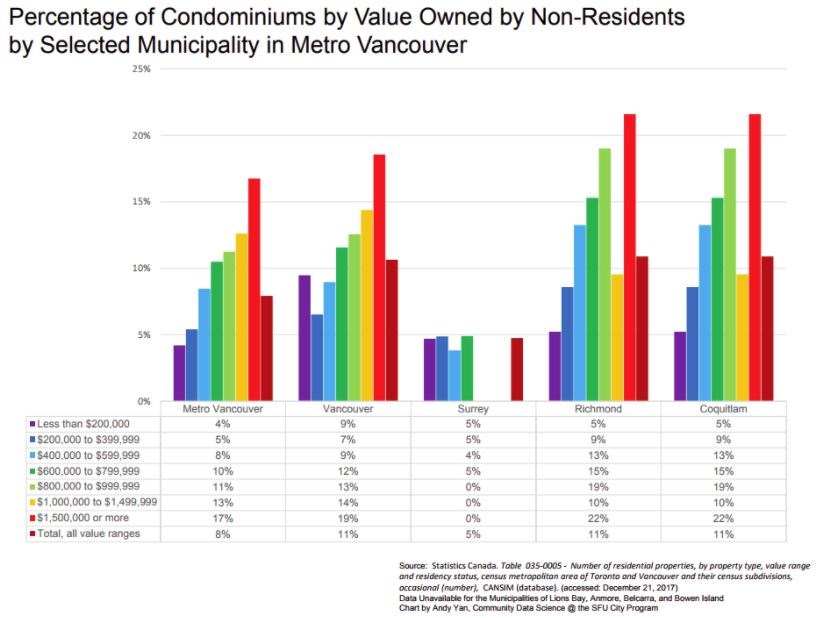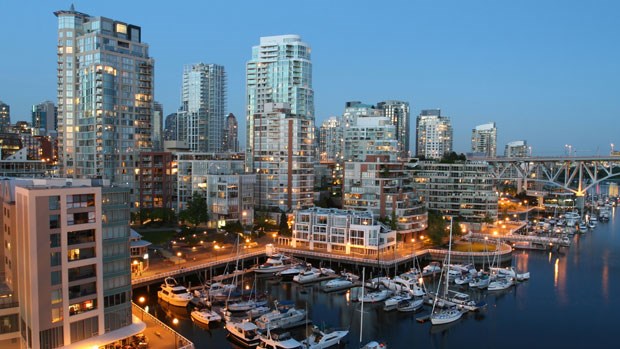Â鶹´«Ă˝Ół»real estate’s hottest topic – foreign ownership – is being debated again as industry experts pull apart that said only 4.8 per cent of Metro Â鶹´«Ă˝Ół»homes are owned by non-residents
That figure is higher within the City of Â鶹´«Ă˝Ół»proper, at 7.6%, according to the data, which was released December 19 and is a combination of land registry records, tax filings, research from the Canada Mortgage and Housing Corporation and other sources.
Andy Yan of the SFU City Program issued a series of graphs January 10 that point out this figure is much higher when looking at higher-priced properties, condos, and newer homes.
Yan observed that the increase in foreign ownership proportions at the higher end of the market does not mean that locals are not competing with overseas buyers for homes – especially condos.
His study finds that non-residents own at least one in 10 condos in every category of unit worth $600,000 or more.

In the bracket of Metro Â鶹´«Ă˝Ół»condos worth $600,000 to $799,999, non-residents owned 10 per cent. In the City of Vancouver, that rises 12 per cent. Non-residents owned 19 per cent of condos worth $1.5 million or more in the City of Vancouver, and 22 per cent of such units in Richmond and Coquitlam.
Josh Gordon, Yan’s colleague a professor at Simon Fraser University, , “What is very interesting is that this data is being spun in a certain manner and it is not illustrating the point that many people want it to make. Once you look at flow, not stock, the picture changes substantially.”
For the City of Vancouver, that picture does change substantially, with Statistics Canada reporting that more than 19% of condos built in the past two years in Â鶹´«Ă˝Ół»proper were purchased by non-residents, and more than 11% of new detached houses. When combing all new home types, overseas ownership comes to 17.3%.
However, it should be noted that Statistics Canada’s term “non-residents” also includes Canadian owners who live overseas, as well as foreign nationals living outside Canada.
According to media reports, Andrew Weaver of the BC Green Party said this week it is time to ban non-residents – including Canadians who do not live in Canada – from purchasing existing homes. According to Metro, he said, “We are delighted for people to come and work and live and own property in B.C. but it’s not okay for people to park capital here with no intention of living here.”
Weaver believes anybody who does not live in BC should not be able to buy property – but that they should be allowed to invest in new housing. This would be similar to introduced in fall 2017.
The idea is one of several affordable-housing policies the Green Party plans to propose in the coming days, according to Weaver, who is hoping for “good news” in the February BC Budget. However, the BC NDP Party has previously said that the 2018 budget will not include a foreign buyer ban.
Nathanael Lauster, professor and housing expert at UBC, , “I think we should target speculation. I’m not sure what targeting foreignness does for us.



